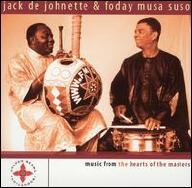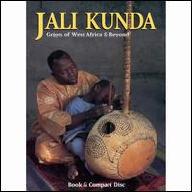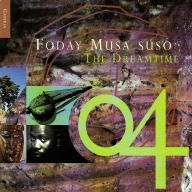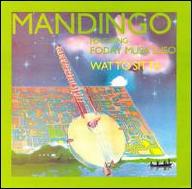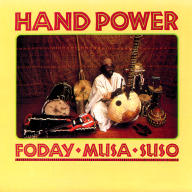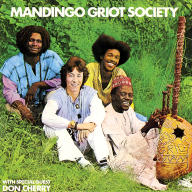While at the university Suso met Chicago-based percussionist Adam Rudolph, and in mid-1977 he relocated to the Windy City, forming the world fusion outfit Mandingo Griot Society with Rudolph, percussionist Hamid Drake, and bassist Joe Thomas. The group's first performance at the Daley Center in downtown Chicago earned significant media exposure and landed Suso a job with the Illinois Arts Council teaching African culture in area schools. Following just their second gig, the Mandingo Griot Society signed with the local Flying Fish label, in 1978 recording their self-titled debut LP with the great Don Cherry on trumpet. A follow-up, Mighty Rhythm, appeared in 1981, but after Rudolph relocated to Los Angeles and Drake began focusing his energies almost exclusively on his burgeoning collaboration with saxophonist Fred Anderson, the unit effectively dissolved, and Suso returned to his solo career. In 1983 he contacted Laswell, inspired by the producer's work on Hancock's groundbreaking Future Shock album, and Laswell invited Suso to contribute to Hancock's follow-up, Sound-System. The legendary keyboardist was so pleased with the end result that he invited Suso to join his band for a Japanese tour that yielded the live LP Village Life.
Suso signed to the Celluloid label to release his 1984 solo debut, Watto Sitta, recorded with the core Mandingo Griot Society lineup with contributions from Hancock and djembe master Manu Washington. After he and Hancock jointly headlined a 1986 live record entitled Jazz Africa, Suso returned to West Africa for a month in the company of composer Philip Glass, then preparing his score for filmmaker Godfrey Reggio's #Powaqqatsi, and upon coming back to the U.S. they agreed to collaborate, ultimately scoring Minneapolis' Guthrie Theater's 1989 production of +The Screens, Jean Genet's stage drama about Algeria's struggle for independence from France. Glass' influence profoundly affected the minimalist aesthetic dominant on Suso's 1990 LP, Dreamtime. Glass also introduced Suso to Kronos Quartet violinist David Harrington, and in 1992 he played kora on the avant classical group's Pieces of Africa. In 1995 the original Mandingo Griot Society lineup reunited to perform at the African Festival of the Arts, and the following year Suso's contributions to the Jali Kunda: Griots of West Africa and Beyond collection earned widespread attention from the mainstream media. In the years to follow he collaborated with jazz legends Pharoah Sanders and Jack DeJohnette, and in June 2004 he and Glass traveled to Athens, Greece, to perform Orion, a new piece commissioned in honor of the Summer Olympic Games. ~ Jason Ankeny, Rovi


